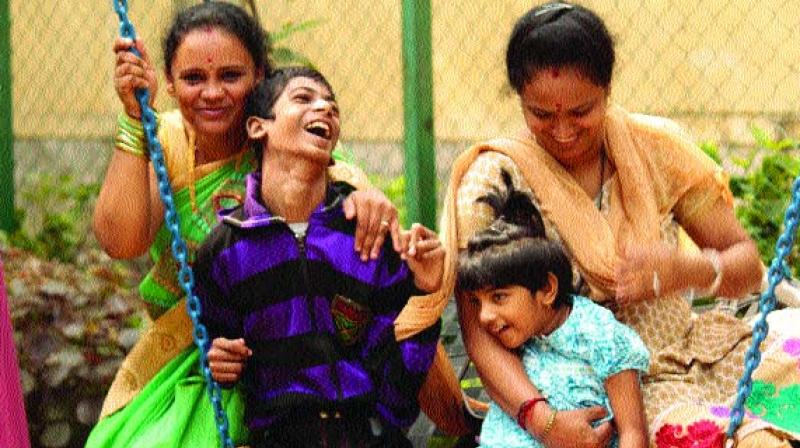Tamahar: Helping special children lead a normal life
Tamahar founder 's journey to help children with intellectual disability began more than 25 years ago.

Occupational therapist and Tamahar founder 's journey to help children with intellectual disability began more than 25 years ago. "I first started working in the rehabilitation sector here in Bengaluru. From that start as an associate for Spastic Society of India, It’s been a long eventful journey that has led to formation of Tamahar, a full-fledged centre for children with special needs and their families," Vaishali said.
Tamahar was registered as non-profit started in 2009 and is currently working with more than 60 children with more than 300 children coming and taking help.
Her NGO provides assessment and rehabilitation services to children with special needs and support services to their families by providing affordable and quality developmental interventions appropriate to the mental age of the child and training the parents to be primary therapists.
"Tamahar works with children suffering from developmental delays due to brain damage, up to the age of 21, who come from all socio-economic backgrounds; through the medium of holistic developmental intervention (combination of occupational therapy, speech therapy, physiotherapy, Music Therapy, yoga therapy), arts, dance, sports and basic education, Vaishali said.
Recalling her journey she said, “In these two and half decades, I have had amazing, good, bad and downright ugly experiences. I have seen single mothers struggling to carry heavy babies in crowded public transport, harassed fathers leaving meetings to get to doctors appointments on time, just to be told doctor is not coming in that day. I have seen children howling while going through tortuous therapies, looking forlorn at siblings playing independently. I have seen tired family members trying to console a screaming infant or a tantrum-throwing youngster. I have seen harried doctors who treat 40 patients a day, trying to make sense of why did this particular child is having such terrible seizures, why is a child not able to sit quietly in one place for more than 30 seconds."
As for societal stigmas Vaishali said, "I know of many parents who shy away from taking this help only because it is so difficult to trust someone else with your precious baby. To look at it from the other side, many a time, society feels helpless, feels they don’t know how to help. What to do to make it easy for such parents?"
Another major problem that she has witnessed over the years seems to be “What if the neighbours/relatives find out, what if they know that my child is incapable of following my dreams, why should my child not go to a regular school like other children.”
"We at Tamahar believe that parents are primary therapists, they continue with the therapy programme at home, ensuring a 24-hour intervention. This is possible if therapy techniques and teaching techniques are shared with the family and they are encouraged to continue working with the child at home. It is compulsory for our parents to be part of the programme, where they are given both theory and practical training on an ongoing basis,” she said.
Vaishali’s team consists of 25 teachers and interventionists, but they maintain the ratio of one child to one teacher. However, mobilising funds is not an easy task.
"Earlier it was through contacts, friends helping with funds. But, now we are taking help of CSRs but the real issue is that their agenda has to align with ours, hence it is not that easy," she said.
However, her pursuit to help families feel confident about their children continues. "Our focus is shifting to impart this knowledge to as many organizations as possible in form of a training module and also train our own pool of professionals to reduce the shortage of good interventionists in the state.
There are about 9.5 lakh children with special needs in Karnataka alone and we cannot possibly go on opening centres. Hence, we are trying to enable the organisations already working on the grassroots level and turn them into experts, as it would be less time-consuming. We have already tied up with multiple organizations in rural north Karnataka, one in Bengaluru and government schools in rural districts around the city to share our expertise and are looking for more partners," she summed up.

